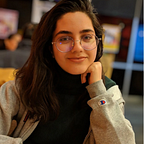Essay Series: How Fanfiction Made Me Start Caring About Censorship
--
Malaysia has long been infamous in Southeast Asia for censorship. Though not unique to the region, there have been many instances that the censorship has affected the nation to such an extent that the population has attempted to turn to social media to spread any kind of change. Little did they know, the censorship rampant in the country would extend to online spaces as well.
Not unlike the leader of the free world- Donald J Trump- our dear ex-prime minister Najib Razak was particularly fond of controlling his own narrative. Even at the height of the 1MDB scandal, he had the gall to try and make the Malaysian news outlets paint him in a light that was less than scathing. Unlike Donald Trump, and thanks to corruption, Najib had the power to actually shut down news outlets that wrote pieces criticizing him by filing successful defamation suits. This left social media as the only landscape onto which Malaysians could spread news that wasn’t hindered by the government’s interference. Or so, one would think. Najib managed to terrify netizens into taking down any anti-government sentiment, or “propaganda” as he called it by threatening arrests or legal action.
The extreme censorship finally triggered a protest led by journalists when a weekly magazine called The Heat was shut down for publishing an article condemning the spending habits of the Prime Minister’s wife, Rosmah, who had spent thousands of tax payer’s dollars to take a private plane to a conference. Malaysian journalists eventually came together to form an informal coalition called Gerakan Media Marah, or The Angry Media Movement, in order to protest and prevent further interference on the nation’s free speech.
Growing up, I did not give much thought to this. I did not, after all, care much about politics yet. So what if people’s irrelevant opinions were being taken off social media? Barring a few explicit movie scenes being removed in theaters, I could still watch whatever I wanted, and I could still read whatever I wanted.
This changed in 2016. The Malaysian Communication and Multimedia Commission (MCMC) decided that a website called fanfiction.net had content that was a tad too explicit and “detrimental to the moral fabric of society.”
This angered me to no end. For most of my teenage life, I had used this site to read and share stories. It was the one place I could depend on to find free stories, and to express my own creative writing. This was a community I had been a part of for years. I had found friends through this website and now, it was blocked.
I took to social media to express my extreme dismay. I found many others with similar sentiments, and we rallied to express our anger about this issue. My father, who had complained about censorship many times before, laughed at me. “This is the issue that finally affected you enough to do something about it?”
Yes, yes it was.
At this point, I began looking into the extent of censorship in Malaysia. What I found horrified me. Politics were not the only thing that the government was censoring. Anything that criticized Islam was taken down, as were LGBTQ websites, dating sites, torrenting sites, gambling sites, and pornography sites. Of course, one may think that some of these topics are justifiably censored, but this begs the questions then: who decides, and where does it stop?
The MCMC decides what is acceptable based on whether it affects the moral fabric of our society, but what they decide is immoral is purely based on their subjective opinions. Islamic views also have a stranglehold on the government’s regulatory bodies, despite Malaysia officially being a secular state. There should no room for religion’s interference.
You can laugh at me all you want, but I can firmly state that fanfiction.net is what triggered my interest in Malaysian politics. I began rooting for the opposition, a political party that promised less censorship, a more free Malaysia. They promised that they wouldn’t ban artists from performing just because they had explicit lyrics and wore provocative clothing, that they wouldn’t ban movies just because they had topics that a few, old members of a regulatory board with conservative views did not approve of. I want to be able to go to the theatre, watch a movie, and understand the whole plot because parts haven’t been cut out to prevent us from seeing some kissy scenes.
Most of all though, I wanted a media that is able to express the truth. How are we supposed to make any informed opinions and how are we supposed to bring about any societal change if we are only given half-truths?
The population rallied in a spectacular fashion before election time in 2018. Despite the heavy regulation, people continued to post and share news that was being censored. Many were arrested, others fined, but people fought for the truth to be heard This paid off, and when the opposition won, hope swelled up. Change had finally arrived, I thought.
One year on, the struggle is still real. While there is less censorship, it is not completely eradicated. News outlets have reported as having more freedom about what they write about, but the creative industry has not been enjoying the same rights- Fanfiction.net is still banned, LGBTQ exhibitions are still being taken down. The moral fabric of the country is still in question, and the Gerakan Media Marah is working hard to overcome these challenges. I believe we can do it, though. We did it before, we can do it again.
The nation’s soul is currently hanging in the balance, and this is a war we’re going to have to keep fighting. Our future depends on it. Our freedom depends on it.
Note: This article was originally written in 2019 for a media literacy class.
